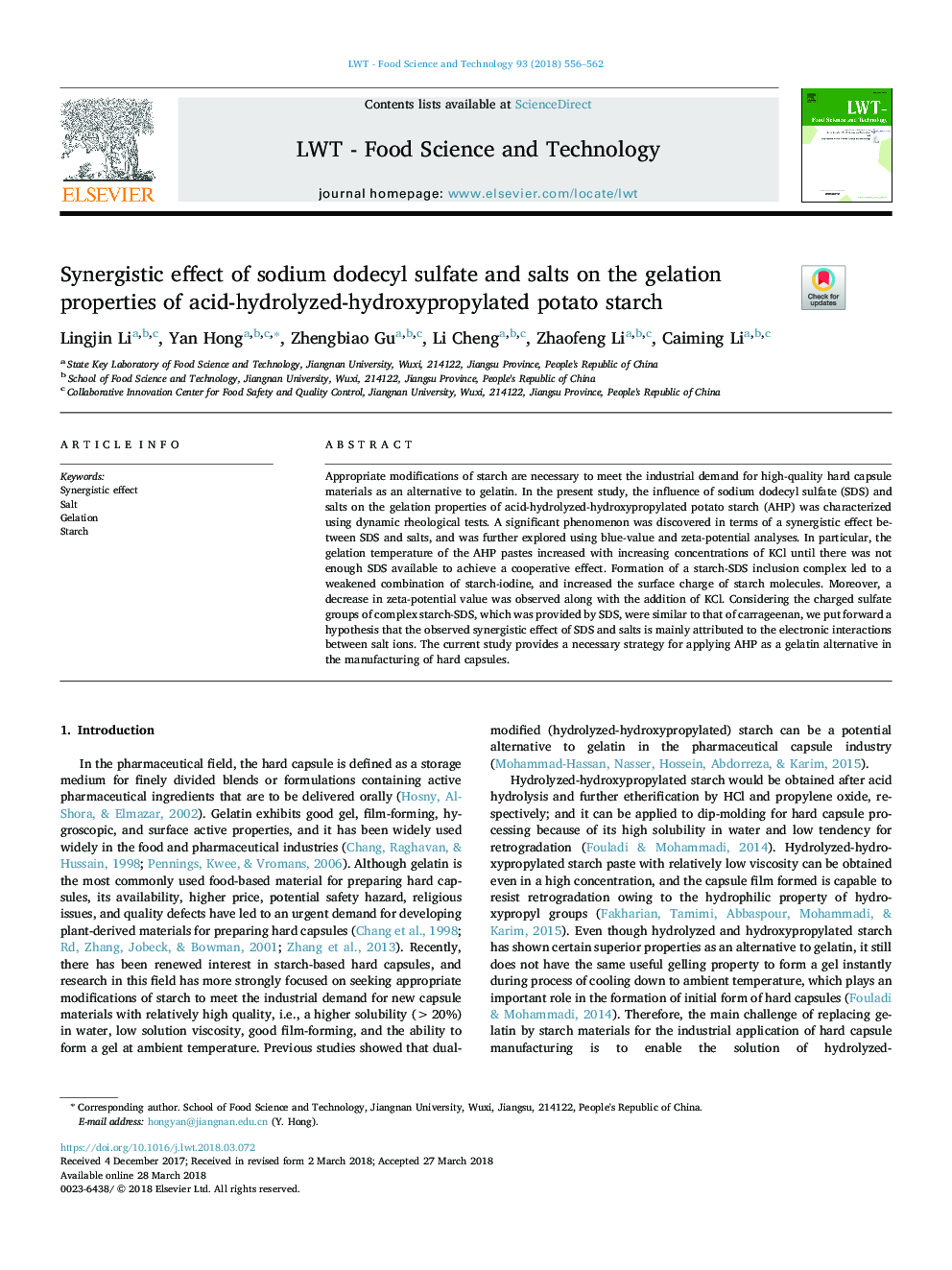| Article ID | Journal | Published Year | Pages | File Type |
|---|---|---|---|---|
| 8891087 | LWT - Food Science and Technology | 2018 | 7 Pages |
Abstract
Appropriate modifications of starch are necessary to meet the industrial demand for high-quality hard capsule materials as an alternative to gelatin. In the present study, the influence of sodium dodecyl sulfate (SDS) and salts on the gelation properties of acid-hydrolyzed-hydroxypropylated potato starch (AHP) was characterized using dynamic rheological tests. A significant phenomenon was discovered in terms of a synergistic effect between SDS and salts, and was further explored using blue-value and zeta-potential analyses. In particular, the gelation temperature of the AHP pastes increased with increasing concentrations of KCl until there was not enough SDS available to achieve a cooperative effect. Formation of a starch-SDS inclusion complex led to a weakened combination of starch-iodine, and increased the surface charge of starch molecules. Moreover, a decrease in zeta-potential value was observed along with the addition of KCl. Considering the charged sulfate groups of complex starch-SDS, which was provided by SDS, were similar to that of carrageenan, we put forward a hypothesis that the observed synergistic effect of SDS and salts is mainly attributed to the electronic interactions between salt ions. The current study provides a necessary strategy for applying AHP as a gelatin alternative in the manufacturing of hard capsules.
Keywords
Related Topics
Life Sciences
Agricultural and Biological Sciences
Food Science
Authors
Lingjin Li, Yan Hong, Zhengbiao Gu, Li Cheng, Zhaofeng Li, Caiming Li,
